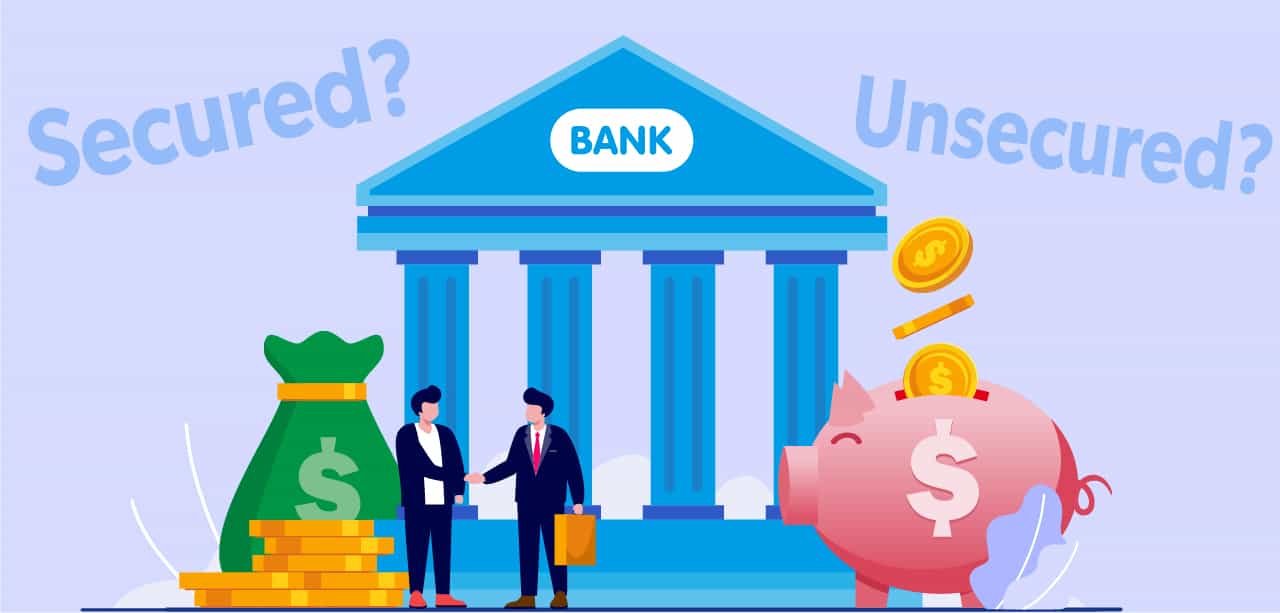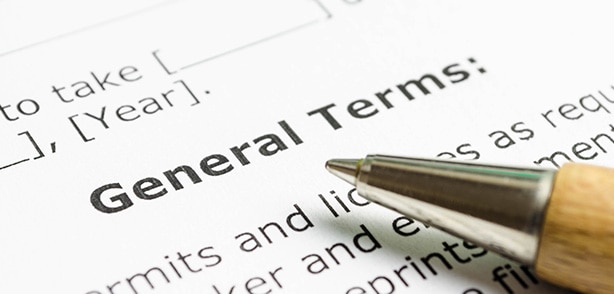The Practical SBA Loan Guide for Small Business Owners
Fora Financial offers access to SBA Loans (Small Business Administration Loans). Discover everything you need to know, from eligibility to benefits, to determine if this financing option aligns with your business goals.

What Is an SBA Loan?
An SBA Loan is a financing option specifically designed to support small businesses, backed by the U.S. Small Business Administration (SBA). Its partial government guarantee reduces lender risk, allowing businesses to access funds with more favorable terms, like lower interest rates and extended repayment periods.

How Does an SBA Loan Work?
An SBA Loan works by partnering with approved lenders who provide funding, while the SBA guarantees a portion of the loan, reducing the lender’s risk. Businesses apply through these lenders, and if approved, they receive the funds while following the SBA’s specific use guidelines and repayment terms.
How To Use SBA Loans
An SBA Loan can be used for a variety of business needs, including purchasing equipment, expanding operations, covering working capital, or refinancing debt. With flexible uses, these loans allow businesses to strategically fund growth and support long-term financial stability.
-
Expand Operations
Fund the opening of new locations, renovation of existing spaces, or purchasing new equipment, helping businesses grow their footprint and increase revenue potential.
-
Purchase Inventory and Supplies
Businesses can use an SBA Loan to buy necessary inventory or supplies, especially useful for seasonal businesses that need to stock up before busy periods or to fulfill large customer orders.
-
Manage Cash Flow and Cover Operating Expenses
An SBA Loan can provide the working capital needed to manage cash flow, pay employees, cover rent, or meet other day-to-day expenses, ensuring smooth operations during slower sales periods.
Types of SBA Loans
SBA 7(a) Loans
The most popular SBA loan, the 7(a) loan program offers funding up to $5 million for a wide range of business purposes, including working capital, equipment purchases, and real estate. It provides flexible terms and competitive interest rates, making it ideal for general business needs.SBA Express Loans
SBA Express loans expedite the loan process, offering up to $500,000 with a quicker turnaround than standard SBA loans. While the maximum loan amount is lower, these loans provide faster access to funds for short-term needs.SBA 504 Loans
This loan program focuses on long-term financing for fixed assets like real estate, machinery, and equipment, with loans up to $5.5 million. It offers low-interest rates and extended terms, which can help businesses make major investments.SBA Microloans
An SBA Microloan provides a small, short-term loan of up to $50,000, primarily to startups, small businesses, and certain nonprofits. They’re designed for businesses with smaller capital needs, offering flexible use options and relatively low interest rates.SBA Disaster Loans
SBA Disaster Loans offer up to $2 million to businesses, nonprofits, and homeowners impacted by declared disasters. These loans provide funds to cover physical and economic damages to help businesses recover and rebuild.SBA Community Advantage Loans
Designed for underserved markets, Community Advantage Loans provide up to $350,000 to businesses in low-income or disadvantaged communities. They aim to foster economic growth in areas that may have limited financing options.SBA Working Capital Loans
These loans provide short-term capital to help cover day-to-day operational costs, such as payroll, inventory, or rent. They are ideal for businesses needing liquidity to maintain smooth operations.SBA Export Express Loans
Export Express Loans offer quick access to funding of up to $500,000 to support export-related activities. These loans help small businesses expand into international markets with minimal delay.SBA International Trade Loans
Providing up to $5 million, International Trade Loans assist small businesses in financing their expansion or export operations. This program is designed to help businesses that face competition from foreign companies or want to enter global markets.Why Apply for SBA Loans?
Lower Interest Rates and Favorable Terms
SBA Loan rates are often lower and with longer repayment terms compared to traditional loans, making monthly payments more manageable and reducing financial strain.
Flexible Use of Funds
An SBA Loan can be used for a wide range of business needs, from purchasing inventory and equipment to covering operating expenses or even funding an expansion, giving businesses the flexibility to invest where it’s needed most.
Access for Startups and Small Businesses
Because the SBA partially guarantees these loans, lenders are more likely to approve businesses that may not qualify for conventional financing, making it easier for startups and small businesses to secure funding.
Pros & Cons of SBA Loans
Pros
-
Access to Additional Capital
-
Reasonable Terms and Conditions
-
Consistent Cash Flow
Cons
-
Difficult to Apply For
-
Relative High Interest Rates
-
Personal Risk
Is an SBA Loan Right For You?

SBA loans offer attractive terms and lower interest rates, making them a solid financial option for many businesses seeking funding. However, it’s essential for businesses to explore all available loan types to ensure they select the option that best aligns with their unique financial goals and needs.
We're a Funding Partner
with a Proven Track Record
Since 2008, we've grown with the companies we support.
Minimum Eligibility Requirements
Requirements for funding with Fora Financial include looking at credit scores, financial documents, your established business history, potential collateral, and more. Here’s an idea of what to expect:

| Time in Business | Minimum 6 Months |
|---|---|
| Business Annual Growth Revenue | $240K+ Annual Revenue |
| Business Checking Account | Yes |
| US Citizen/Based Company | Yes |
| FICO Score | 570+ |
| Other Financing | None |
| Bankruptcies | None open |

Better Your Business With Fora Financial
-
Expand Business Location
-
Purchase or Repair Equipment
-
Manage Expenses
-
Renovate Existing Location
-
Invest in Updates
-
Hire Skilled Workers
Case Studies
SBA Loan FAQ
-
The time it takes to get an SBA loan varies based on factors like loan type, lender, and application complexity, but it generally takes anywhere from 30 to 90 days. Working with an experienced lender and providing complete documentation can help speed up the process.
-
SBA Loans for small business have stricter qualification requirements than some traditional loans, including creditworthiness, business history, and financial stability. While they are designed to support small businesses, applicants should expect a thorough review process to ensure they meet the SBA's and lender's standards. In some cases, a down payment may be required.
-
There is no official limit to the number of SBA loans a business can receive, but each application will be reviewed independently, and borrowers must meet eligibility requirements and show the financial ability to repay all existing debts. More details on taking out multiple SBA loans (and whether you should) can be found here: How Many SBA Loans Can You Get?
-
While a higher credit score is typically preferred, some SBA loan lenders may work with applicants who have less-than-perfect credit. The SBA doesn’t set a minimum credit score, but lenders usually look for a score above 600, though strong financials and collateral can help improve approval chances.
-
Yes, women-owned businesses can access specific SBA programs and grants tailored to help them succeed. The SBA supports Women’s Business Centers across the U.S., which connect female entrepreneurs with financing resources. Additionally, the Women-Owned Small Business Federal Contracting Program helps qualifying businesses secure government contracts. Other options, like the InnovateHER Challenge, offer federal grants to businesses benefiting women. Programs like the Small Business Innovation Research (SBIR) and SBA 8(a) Development Program also provide funding for eligible women-led businesses. Find out additional information in our article about SBA Loans for women.
-
Processing costs for SBA loans can include application fees, closing costs, and guarantee fees, which vary depending on the loan amount and terms. For larger loans, guarantee fees typically range from 2% to 3.75% of the loan, while smaller loans might have minimal or no upfront fees.
-
SBA loans can be a great option for franchise owners, providing funding to cover franchise fees, real estate, or working capital. SBA franchise loans are backed by the Small Business Administration, reducing risk for lenders and making financing more accessible for small franchisees. The SBA 7(a) loan program, often used by franchise owners, offers up to $5 million with competitive interest rates. Only franchises listed on the SBA’s approved franchise directory are eligible, so check this list when considering your options.
-
To refinance, you’ll need to apply through your SBA loan lender, demonstrating a strong financial profile and an improved business outlook since the original loan. Refinancing is available for qualified borrowers and can help reduce monthly payments or extend terms, but approval depends on lender policies and SBA guidelines.
-
Yes, most SBA loans require a personal guarantee, especially for business owners with a 20% or greater ownership stake. This means that if the business defaults, the lender may pursue the owner's personal assets to recover the remaining loan balance.
-
Yes, the interest on SBA loans is generally tax-deductible as a business expense. Business owners can deduct interest payments from taxable income, which may reduce their overall tax liability, though it’s best to consult a tax professional for specific guidance.
-
If you default on an SBA loan, the lender will first attempt to collect from the business assets. If those are insufficient, they may pursue the personal guarantee, potentially leading to the seizure of personal assets. Additionally, default can severely impact the business owner's credit and future borrowing capacity.
-
For larger SBA loans, collateral is typically required to secure the loan, though smaller loans or lines of credit might not have this requirement. The SBA looks to take available collateral when possible, but lack of collateral alone won’t necessarily disqualify a loan applicant.
Resources Related to SBA Loans
What Sets Us Apart from the Rest
Get Financing Today
Get started with your application and join Fora Financial's family of forward-thinking businesses.







